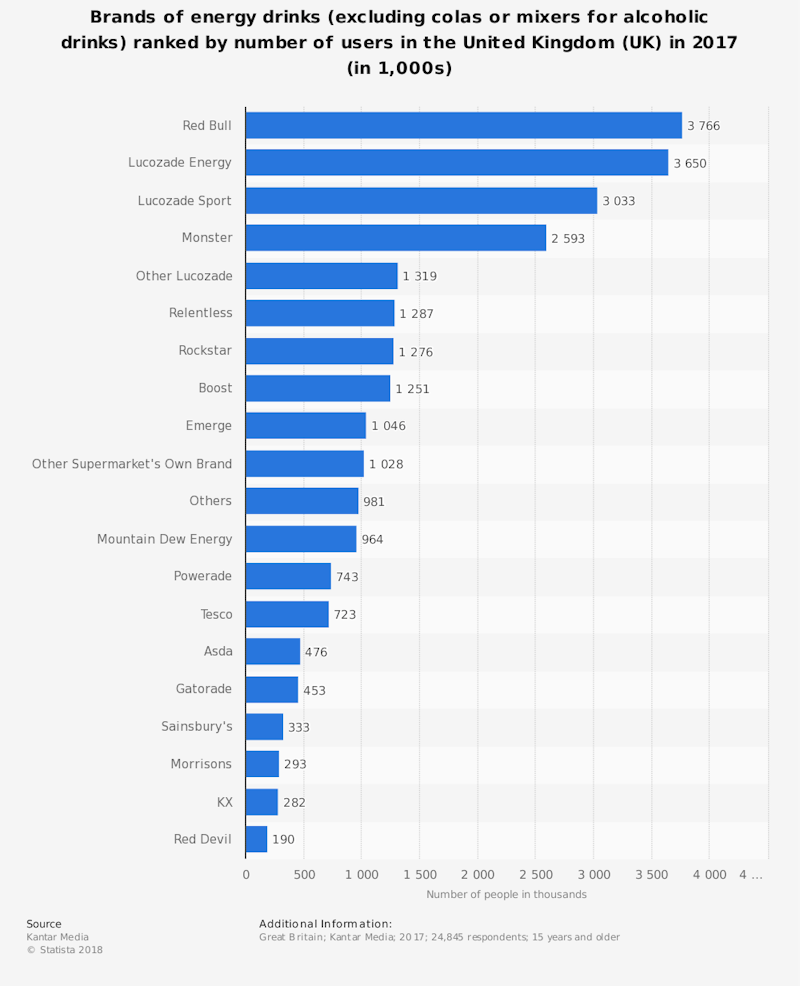In the News
Government floats ban on energy drinks for under-18s

30th August 2018
If this change in law comes about, it will mark a potentially hugely significant intervention by the UK government. They are consulting about introducing a ban on under-18 buying drinks containing 150mg of caffeine or more per litre.
Our @Adamstoon1 @EveningStandard on banning energy drinks pic.twitter.com/XMuVdcyhCs
— George Osborne (@George_Osborne) August 30, 2018
We fully support the proposed ban of energy drinks to children. Have your say here https://t.co/I81fsxY96U @actiononsugar #LessSugar #energydrinks
— Action on Salt and Sugar (@ActionSaltSugar) August 30, 2018
UK government proposes energy drinks ban for children https://t.co/w3F8U1lMie
— FT for Schools (@ft4s) August 30, 2018
This is a good example of a command and control intervention that by-passes the price mechanism. Many supermarkets already operate their own restrictions on under-16s buying energy drinks, but inevitably there are ways around this including purchases by older teenagers being passed on and access to drinks from vending machines. The BBC reports that British youngsters are among the highest consumers of energy drinks in Europe.
Any policy intervention affects will have an impact on many different stakeholders both in the short and longer-term. It is a great issue for student economists to discuss. How many concepts can you bring into your analysis and evaluation?
Topics covered include:
- Externalities from consumption
- Information failures - are energy drinks rightly classified as de-merit goods?
- Economics of small businesses
- Health economics - including the long term impact on obesity, diabetes and tooth decay
- Impact of energy drinks on economic and social well-being
- Whether regulation is more effective than taxation and/or alternative interventions
- Risks of government failure

The truth about what downing #EnergyDrinks really does to kids https://t.co/HcEFkFi7LQ pic.twitter.com/NwYdF3kdrp
— New Scientist (@newscientist) August 30, 2018
Energy drinks sales to under 18s could be banned if the government gets its way on legislation revealed today. If the law changes, traders could be fined up to £1,000 if they're caught selling to people under the new legal age.
— Good Morning Britain (@GMB) August 30, 2018
More from @LouisaJamesITV pic.twitter.com/C2pBUAPxJe
Selling energy drinks to under 18s could be banned in England because of worries about the high level of sugar and caffeine.
— BBC Radio 5 Live (@bbc5live) August 30, 2018
How much caffeine is in your drink?
🔵 More on #5LiveBreakfast pic.twitter.com/vFniMnrsN9
You might also like
Government Failure: Growth Voucher Scheme Branded a Failure
18th August 2015

Externalities - Gold mining in Ghana hurts farm productivity
20th December 2016

Evidence based policies are often built on sand
2nd August 2017
Are Britain's clean car goals sufficiently ambitious?
22nd May 2018

Government Failure - Trains in Spain
22nd February 2023
1.3.1 Types of Market Failure (Edexcel)
Study Notes